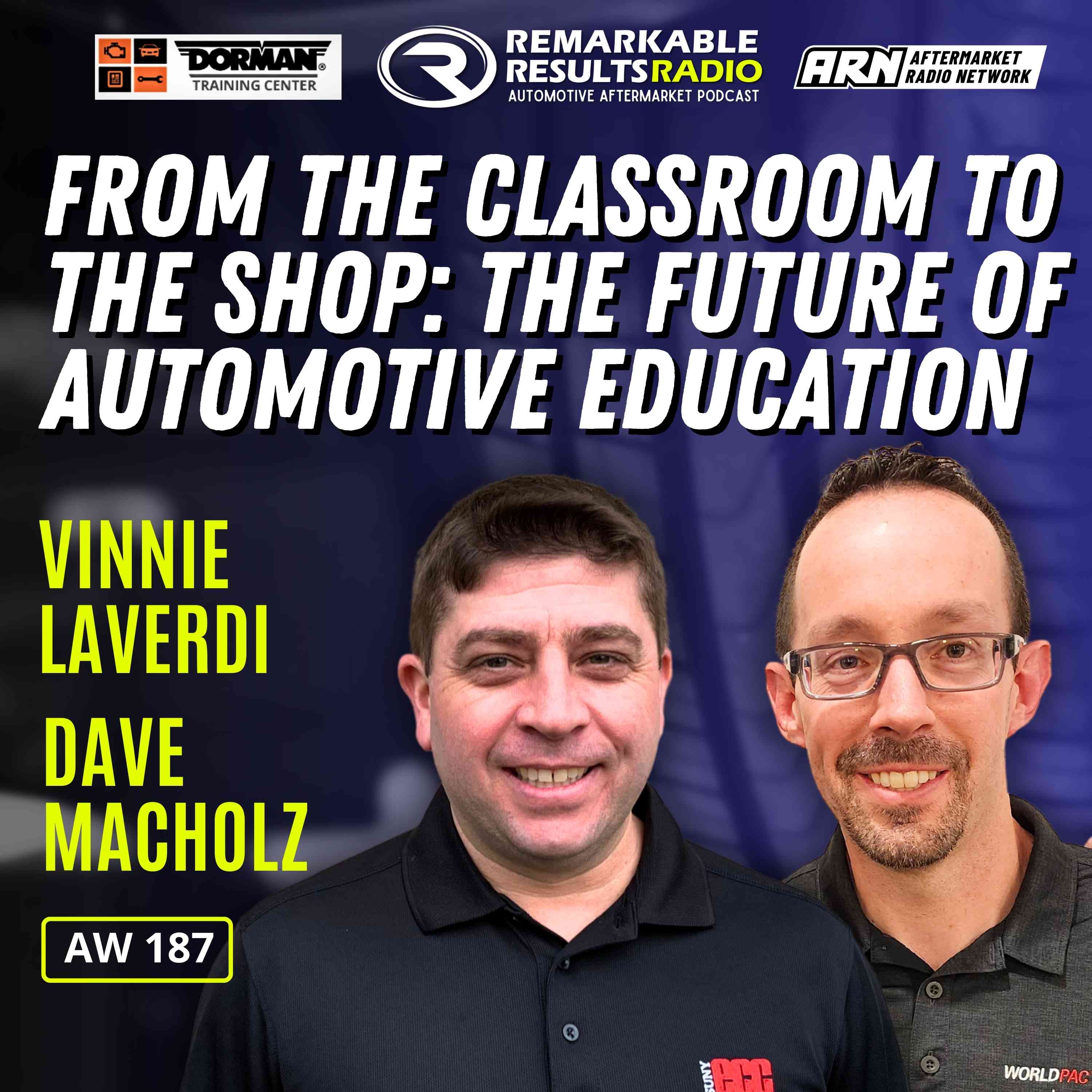From the Classroom to the Shop The Future of Automotive Education [AW 187]

b'
\\n
\\n
\\n\\n
\\n\\n\\nAcademic chairs Dave Macholz and Vinnie Laverdi, discuss automotive training at the college level. Both work in the State University of New York system at community colleges. They cover the importance of soft skills in the industry, the role of mentors, and the need for industry professionals to engage with educational institutions. The episode emphasizes the sophistication of the automotive industry, the potential for growth and advancement in automotive careers and the need to incorporate electric vehicle technology into the curriculum.\\n\\nVinnie Laverdi\'s previous episodes HERE.\\nDave Macholz\'s previous episodes HERE.\\n\\n
\\n\\n
Show Notes:
\\n\\n\\n
\\n
- \\n \\t
- Watch Full Video \\n \\t
- The importance of continuous education (00:00:01) The importance of continuous education for professional technicians and the need to stay updated with the latest trends and techniques in the automotive industry. \\n \\t
- Hybrid model of education (00:03:07) Hybrid model of education that combines guest speakers with content and curriculum to provide practical training for students. \\n \\t
- Challenges in EV training (00:05:05) The challenges of incorporating EV training into the curriculum, including the need for additional competencies and certifications, as well as the shortage of resources and technology in training centers. \\n \\t
- The co-op program (00:08:30) The structure and benefits of the co-op program \\n \\t
- Curriculum change and industry advisory panels (00:12:02) The process of changing the curriculum and the importance of industry advisory panels in informing the decision-making process. \\n \\t
- The role of advisory councils in education (00:14:53) The value of advisory councils in providing support, ideas, and different perspectives to educators, as well as helping to push necessary changes and advancements in education. \\n \\t
- The importance of ADAS technology (00:16:52)\\xa0Discussion about the impact of ADAS calibration kit tool on students\' perception of the automotive industry. \\n \\t
- The process of curriculum change in education institutions (00:17:36)\\xa0Explanation of the governing layers involved in approving and implementing curriculum changes in colleges. \\n \\t
- The increase in enrollment in automotive education programs (00:21:42)\\xa0Discussion on the rise in enrollment in automotive programs, possibly due to changing perceptions of the industry and the demand for technology-driven careers. \\n \\t
- The relationships you build (00:25:07)\\xa0Building relationships with automotive high school teachers and finding nearby schools to collaborate with. \\n \\t
- Presenting technology and partnerships to guidance counselors (00:26:45)\\xa0Meeting with guidance counselors to showcase the technology and industry partnerships available to students. \\n \\t
- AAS versus the AOS degree (00:28:00) Explaining the difference between an AAS degree and an AOS degree, and the benefits of an AOS degree in expanding technical content. \\n \\t
- The soft skills challenge (00:36:16)\\xa0Discussion about the importance of soft skills in the automotive industry and the need for industry support in developing these skills in students. \\n \\t
- Identifying and assessing students\' readiness (00:34:12)\\xa0Exploration of strategies to identify and support students who may need additional preparation in math, English, and other skills before entering the program. \\n \\t
- Pre-advisement and setting...'